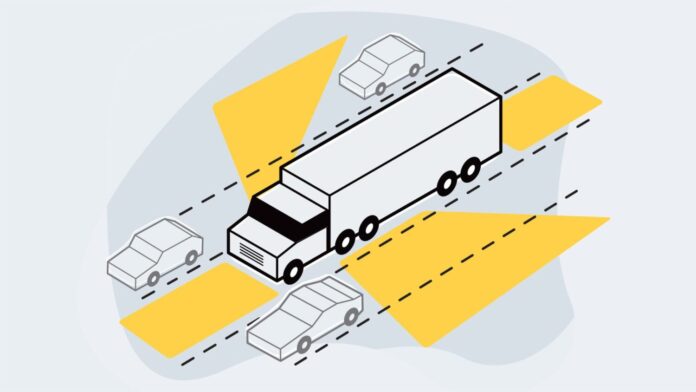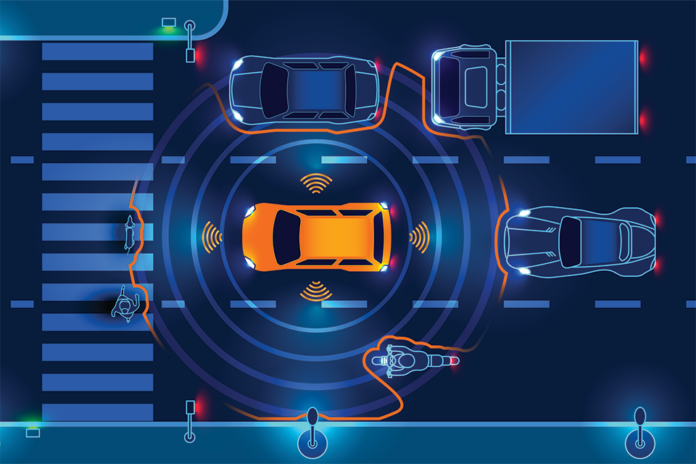Semi-truck accidents and car accidents both can leave behind catastrophic damages and injuries. However, because semis are so much larger and heavier than other vehicles on the road, truck accidents tend to be far more devastating.
Large commercial trucks can create greater force upon impact. When they do, those in passenger cars can wind up with severe injuries, often affecting them for life. In many cases, injured victims in these accidents do not survive.
Aside from the key differences in size and weight, here are other ways that accidents can differ for cars and trucks.
Truck Structure

Semi-trucks have large blind spots, making it difficult to see passing vehicles. While truckers try to watch out, they may run someone off the road if they fail to notice a vehicle lurking in one of those blind spots.
Additionally, because of the weight of a truck — especially when loaded with cargo — it takes longer for it to stop. When traffic suddenly stops or a hazard appears, they may not be able to stop in time.
Semi-trucks are also more vulnerable to jackknifing and rollover crashes. The high center of gravity makes it easy for them to tip over, especially when they swerve or take a tight turn too quickly. When a truck jackknifes, it can result in an accident with all the nearby vehicles on the road.
Intricate Federally Mandated Trucking Regulations
All trucking companies and truck drivers must obey the rules and regulations set in place by the federal government. These rules can make investigations for truck accidents even more complicated.
While you may be able to handle your car accident claim on your own for a minor collision, you would never want to do that with a truck accident. Many truck accident victims in Illinois work with a Belleville commercial vehicle collision attorney who understands the rules and regulations created by the Federal Motor Carrier Safety Administration.
Multiple Liable Parties

While car accidents sometimes involve multiple vehicles and can have more than one liable party, these are still less challenging when determining liability. Semi-truck accidents frequently have more liable parties, and they seldom only involve the truck driver.
In a semi-truck accident, the liable parties can include the trucking company, truck manufacturer, parts manufacturers, truck retailers, mechanics, cargo loaders, or even a government entity responsible for maintaining the roadways.
Semi-Truck Insurance Policies
When you are involved in an accident with another car, you exchange insurance information with the other driver and make your claims. In Illinois, the at-fault driver will be held liable.
This is also true in trucking accidents, though the insurance requirements that trucking companies must meet are very different. These policies are also much larger than the average auto insurance policy. Understanding your options after a semi-truck crash is vital, so you should discuss your case with an attorney.

Impact on Traffic and Emergency Response
Traffic Disruption and Road Closures
Semi-truck accidents often lead to significant traffic disruptions, more so than typical car accidents. Due to their size, when a semi-truck crashes, it can block multiple lanes or even the entire roadway. This obstruction can result in extensive traffic jams, sometimes lasting for hours. Emergency response teams face challenges in navigating these congested roads to reach the accident site, which can delay critical assistance.
Emergency Response and Cleanup Challenges
The complexity of semi-truck accidents extends to the cleanup and emergency response efforts. These accidents often involve hazardous materials spills, requiring specialized cleanup teams. The weight and size of the truck also necessitate heavy-duty towing equipment and additional manpower. This extended cleanup process not only disrupts traffic longer but also strains local emergency response resources, potentially impacting their ability to respond to other emergencies.
Economic and Environmental Impact
Economic Consequences for Businesses
Semi-truck accidents can have a significant economic impact, especially when they involve commercial trucks carrying goods. These accidents can lead to the loss of cargo, which can be costly for businesses.
Environmental Damage
The environmental impact of semi-truck accidents is often more severe than that of car accidents. Trucks frequently carry hazardous materials, and spills can lead to soil contamination, water pollution, and harm to local wildlife. The cleanup of these materials requires specialized procedures and can be costly and time-consuming, highlighting the need for stringent safety measures in the trucking industry.

Psychological and Social Effects
Trauma and Mental Health Impact
Victims of semi-truck accidents, including drivers, passengers, and witnesses, often experience significant psychological trauma. The scale and severity of these accidents can lead to long-term mental health issues such as post-traumatic stress disorder (PTSD), anxiety, and depression.
Community and Social Implications
Semi-truck accidents can have a profound impact on communities. They can lead to a sense of insecurity and fear among local residents, especially if such accidents are frequent or particularly devastating.
Legal and Insurance Complexities
Navigating Legal Challenges
The legal proceedings following a semi-truck accident can be more complex than those for car accidents. Determining liability often involves multiple parties, including the truck driver, trucking company, vehicle manufacturer, and others. Victims may face a daunting legal battle, necessitating the expertise of attorneys specialized in trucking accidents to navigate these complexities and secure fair compensation.
Insurance Claim Intricacies
Dealing with insurance claims in semi-truck accidents is often a complicated process. The high-value insurance policies carried by trucking companies can lead to aggressive defense strategies by insurance providers. Victims need to be prepared for a challenging claims process, often requiring the assistance of legal professionals to ensure that their rights are protected and they receive the compensation they deserve.

Impact on Road Safety Regulations and Industry Standards
Enhancing Road Safety Measures
Semi-truck accidents frequently lead to reevaluation and strengthening of road safety regulations. These incidents highlight potential gaps in existing traffic laws and safety standards, prompting authorities to implement stricter regulations for truck drivers and companies. Enhanced safety measures may include more rigorous driver training, stricter enforcement of driving hours, and mandatory use of advanced safety technologies in trucks.
Influencing Trucking Industry Practices
The aftermath of semi-truck accidents often extends beyond immediate legal and safety concerns, influencing broader industry practices. Truck manufacturers may be prompted to innovate safer vehicle designs, focusing on improved stability, braking systems, and collision avoidance technologies. Additionally, trucking companies are encouraged to adopt better maintenance routines, comprehensive safety programs, and more responsible cargo-loading practices to prevent future accidents. These industry-wide changes aim not only to protect those directly involved in trucking operations but also to ensure the safety of all road users.









